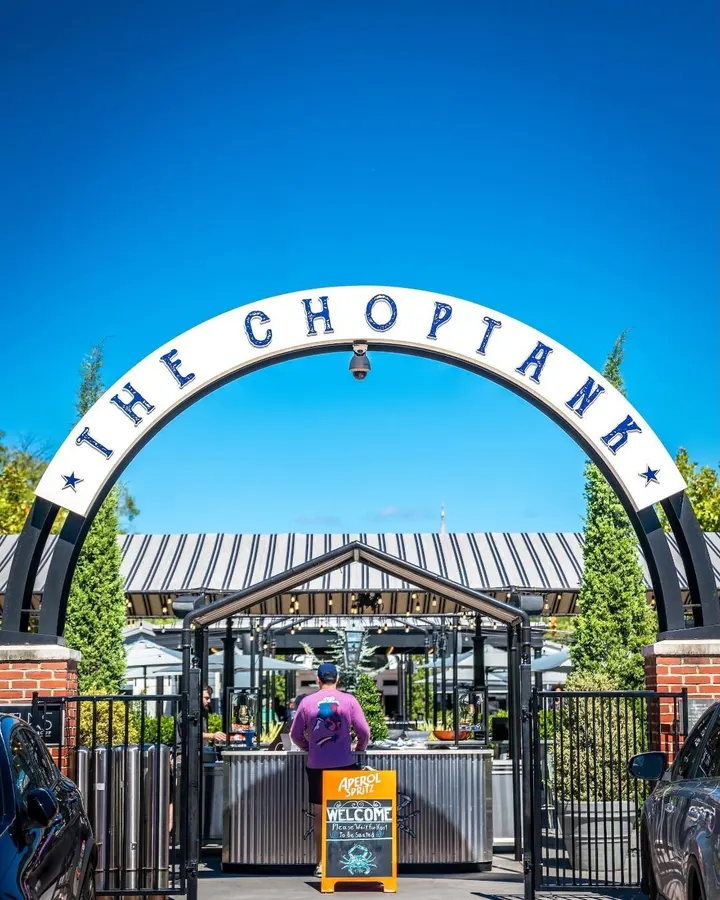Copyright forbes

Seafood restaurants are a mainstay at Atlas Restaurant Group, like Choptank. Courtesy of Atlas Restaurant Group Don’t tell Alex Smith, the 41-year-old founder of the Atlas Restaurant Group, which operates 45 restaurants across 4 states and generated over $191 million in annual revenue in 2024, that he needs to expand into any of the three largest cities in the U.S. either New York City, Los Angeles or Chicago. He thinks he doesn’t need to be there and is quite content to concentrate on regional cities and nearby suburbs. Those larger cities, he cites, “have well-established operators so there isn’t as big of an opportunity for us to expand and grow there.” Hence, he’s satisfied owning restaurants in Philadelphia, Houston, Wilmington, Del., and the suburbs of Baltimore covering 4 states Maryland, Pennsylvania, Delaware and Texas. Atlas Restaurant Group is owned by Alex and his brother Eric and some operating partners. Alex deals with business development and Eric with new construction and beverages. Staying in those regional cities, “We are well-positioned to strengthen our presence and make a greater impact within the hospitality industry. Plus, there’s an overlap between the people that live in cities like Baltimore and Philly and vacation in places like Delaware,” he explains. It works well being in mostly contiguous states because “they’re all close to our employee base and customer base. We’ve clustered our data through apps and loyalty programs,” he adds. In addition, they can rely on the same suppliers for fish, poultry and other food products, which keeps costs down. Moreover, rent is lower in these states and employees who receive tips are paid $3 an hour, which is much higher in larger cities. While many restaurant chains specialize in Italian eateries or wine bars or fast-casual healthy, the Atlas Restaurant Group is multi-faceted and eclectic. Hence, its eateries span the culinary map, offering seafood, Italian, Japanese, steakhouse, crab house, Chinese, Latin American, French, coffee shop, cocktail bar and a live music hall—the gamut. MORE FOR YOU He considers owning so many diverse eateries “less risky” because if one concept falls out of fashion, its overall revenue won’t dip considerably. But seafood and waterside settings do stand out exemplified by Crab House, Dockside, and Choptank. “Seafood is something we do well, and it’s all about sourcing great products. That’s where we started,” Smith asserts. It also has expanded through acquiring a major stake in the Big Fish Restaurant Group in June 2024, which is based in Delaware. “They were a regional group like us with similar concepts and a great reputation,” Smith explains. It’s noted for concepts such as Big Fish and Salt Air. That acquisition added 14 restaurants to the Atlas Restaurant Group portfolio. Atlas opened 4 restaurants in 2024 including the Ruxton and Order of the Ace in Baltimore and Azumi in Houston and 1 in 2025, the Nine Tailed Fox in Baltimore. In 2026, it has plans to expand by 5 new restaurants and that could increase. Smith, the Timonium, Maryland native who has lived in Baltimore for almost 20 years, launched his career at age 23 with a Haagen-Dazs franchise next to a movie theatre in Baltimore in 2007. He followed that with Harbor East Delicatessen and Pizzeria in 2010 in Baltimore, where he prepared pizza, delivered them and learned the ins and outs of the restaurant business. But Smith has always been enterprising. For example, he capitalized that Haagen-Dazs franchise with a $100,000 tenant improvement allowance. Without a restaurant background, he learned the basic skills of payroll, inventory, scheduling, marketing and operations at the Haagen-Dazs training school in Minneapolis. “By the time I finished those classes, I felt well-prepared to open the shop entirely by myself,” he says. After his first two eateries, he added Ouzo Bay, which he calls “a leap into upscale dining” and specialized in Greek food on the Harbor East waterfront. That opening led him to believe he had turned into a “serious restaurateur,” going beyond pizza slices and ice-cream cones. Subsequent to that opening, he launched the Atlas Restaurant Group and hired HR and marketing departments. Smith envisions expanding into other contiguous states such as Virginia and Washington D.C. in the future. If it were to expand to New York, Los Angeles or Chicago, he expects it would be done through acquisition. Asked the keys to its success, he replies: 1) The integrity of its product and ability to put out a great product, 2) Nowadays restaurants can’t just offer food, but must offer entertainment and creating an “experience for the guest,” 3) Hospitality, “never lose the idea of going above and beyond what the guest wants,” Ultimately, success in the restaurant business revolves around “finding talent and hiring people that love the business, and if they love the business, they’ll love the guests,” Smith concludes. Editorial StandardsReprints & Permissions



